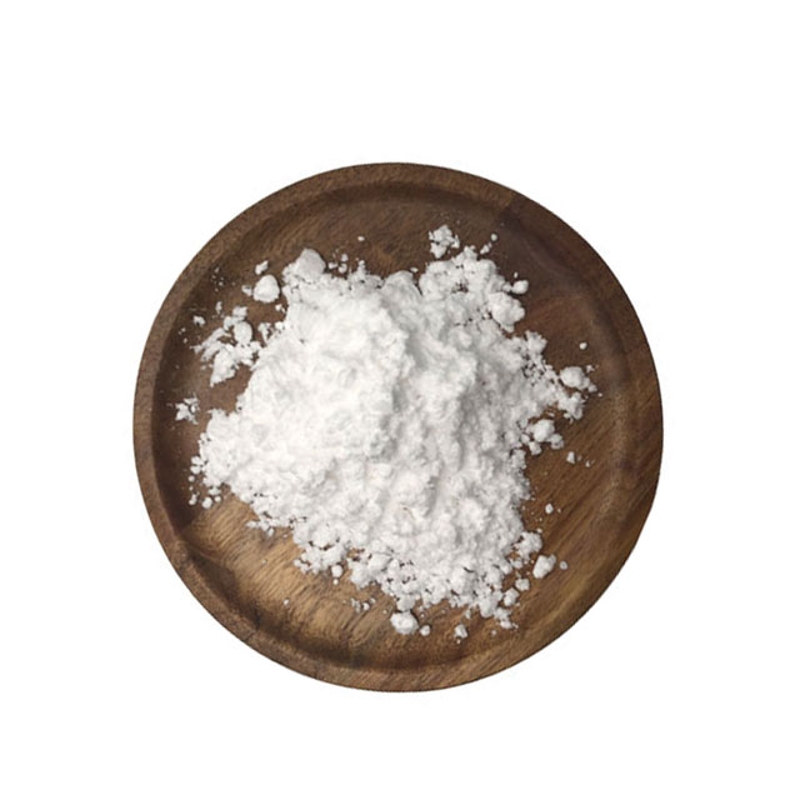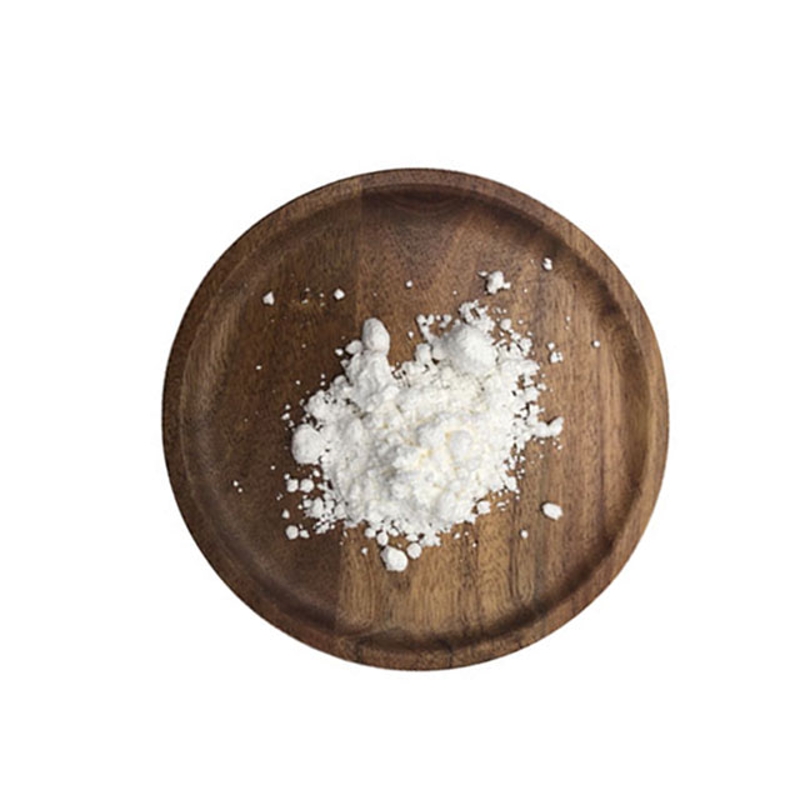-
Categories
-
Pharmaceutical Intermediates
-
Active Pharmaceutical Ingredients
-
Food Additives
- Industrial Coatings
- Agrochemicals
- Dyes and Pigments
- Surfactant
- Flavors and Fragrances
- Chemical Reagents
- Catalyst and Auxiliary
- Natural Products
- Inorganic Chemistry
-
Organic Chemistry
-
Biochemical Engineering
- Analytical Chemistry
- Cosmetic Ingredient
-
Pharmaceutical Intermediates
Promotion
ECHEMI Mall
Wholesale
Weekly Price
Exhibition
News
-
Trade Service
;
. The Chinese government, businesses and residents are not surprised by the recent series of measures taken by the United States to escalate trade frictions. As always, we believe that this practice in the United States will not solve any problems, harm others and harm the world.am5
the U.S. itself will pay a heavy price for trade frictions am5
the U.S. can push tariffs to the limit, but the impact on China's economy will be very limited. In contrast, the United States will be hit almost equally hard by itself. U.S. exports to China will shrink, some high-tech companies will have lower incomes, consumers and importers will pay high costs, and low- and middle-income groups, especially farmers and blue-collar workers, will lose more in real terms. The volatility and downturn in international financial markets caused by trade disputes will also have a huge negative impact on the dollar-dominated international financial system. The goal of the U.S. tariff increase is to reduce the U.S.-China trade deficit, but because of China's counter-reaction, its immediate results are uncertain and likely to have little or no effect, or even counterproductive. The U.S. trade dispute with other developed countries has been going on for more than 40 years, and its roots are at its own, and even as China's exports to the U.S. decline, the pattern of the U.S. trade deficit is hard to change.am5in fact, the United States has benefited greatly from the trade deficit with China. First, nearly 60% of the U.S. trade deficit with China comes from foreign-invested enterprises, a significant proportion of which are U.S.-invested enterprises. U.S. importers and multinationals get the vast majority of profits and added value in the trade balance. Second, about a quarter of the retail goods in the U.S. market are imported from China. China's cheap products are flowing into the U.S., reducing the cost of living for American families and giving them a huge "consumer surplus". Third, U.S. products and services to China, such as food, energy, airplanes, chips and other commodities, are China's price support areas, without China's large procurement, its price is by no means today's level. Fourth, since the 1990s, the United States has experienced a "high consumption, low inflation" miracle, an important reason is that China has increased the global supply of consumer goods unprecedentedly. Fifth, the capital accumulated by China's trade surplus, which supports U.S. consumption and investment by buying dollar assets such as U.S. Treasury bonds, has allowed the U.S. to get cheap capital back and create extremely favorable conditions for its economic recovery and prosperity. Sixth, America's huge current account deficit with China means that it has long taken up the same amount of Chinese savings, making up a significant gap in its investment and savings. Broad money and cash in the U.S. have grown slowly over the past decade, in stark contrast to the 1970s and 1980s.am5the U.S. accusations against China are completely untrue am5
first, accusing "China of stealing foreign technology" as a modern power logic. Any post-development country will learn from the knowledge and experience of developed countries, so development economics has the concept of "tracking imitation stage". In the course of the evolution of human civilization, the intangible assets created by many Chinese inventions have made unparalleled contributions to the world. In the period of industrialization in Europe and America, the technical imitation among each other was very common. Every country has made new contributions to technological progress through its own exploration on the basis of its predecessors, and no country's modernization has been achieved by theft. China began bringing in foreign investment 40 years ago, and foreign investors have benefited greatly from China, all on the basis of mutual benefit, and no project contract was signed by the Chinese government. Technology transactions based on the principle of fairness, such as technology for market or market for technology, are the basic market economy activities recognized by all parties. In today's world, China is a staunch defender and active builder of international rules on intellectual property rights, and the United States, in the name of intellectual property protection, has no basis for its accusations against China. History has long proved and will continue to prove that sanctions and embargoes will not only not deter a country's scientific and technological development, but will stimulate its determination to develop independently and accelerate its technological progress.am5
second, there is no so-called "state monopoly capitalism" in China. We adhere to the principle of competitiveness, emphasize the same treatment of all types of market players, encourage them to compete and cooperate, to achieve complementary advantages of the win-win situation. China's industrial policy and credit policy are guiding, and the principle of marketization and rule of law is adhered to. In fact, China's economic component has shown an increasingly obvious diversification characteristics, the state-owned economy in the proportion of GDP continued to decline, private and foreign investment can enter almost all industries, all areas. In the financial industry, more than 3000 private capital holdings are held by 4,588 banking institutions, 170 domestic insurance companies are mostly privately held, and the vast majority of securities companies and fund companies are also controlled by social capital. Even at the top five banks, the share of non-state-owned capital equity at home and abroad averages about 30 per cent, some even over 40 per cent. China's big five banks now have a market share of only 37%, a markedlow level of market concentration compared with the major economies in europe and the US. China's financial technology is a world leader, the important reason is that the government has adopted a prudent and inclusive attitude towards private Internet enterprises, creating a level playing field.am5
third, China's goal of improving corporate governance will not change. China's private enterprises have been in accordance with the articles of association and organizational structure, as an independent subject in accordance with the principle of market-oriented independent operation, effective operation, the Party organization did not intervene. In state-owned enterprises, the party's leadership has been playing a central role, we in the reform of state-owned enterprises to optimize and improve corporate governance, better play the role of party organization, so that the two organic integration, mutual promotion. From the perspective of global theoretical research and practical exploration, there is no unified standard model of corporate governance, nor is there an optimal model that can be copied. In the communique, the G20 Hangzhou Summit explicitly expressed support for the principles of corporate governance advocated by the G20/OECD. China's enterprises in the principles and framework of corporate governance and other aspects of international standards, and adapt to specific national conditions to supplement and improve, in line with the international practice. Facts have proved that the establishment of a modern enterprise system and adhere to the leadership of the Party is fully compatible. We promote the general meeting of shareholders, the board of directors, management, the supervisory board in their respective positions, each assume the statutory responsibilities. The Party Committee will exercise collective leadership and play the role of putting the direction, managing the overall situation and safeguarding the implementation. Such a governance structure can form a scientific and effective checks and balances mechanism, better protect the interests of the stakeholders, prevent insider control, large shareholder manipulation and directors inadequate performance of their duties and other issues. The corporate governance model with Chinese characteristics is fully feasible. Moreover, many of the claims that China is heavily subsidizing exports, suspecting China's currency manipulation, criticizing China for not opening its markets, and so on, have been contradictory.am5China's development should be based on doing its own thing am5no external forces can change China's direction, the Chinese nation must firmly in their own hands. Whether we can go more robust, the key is to do our own thing. am5 firmly deepen reform in an all-round way. In the financial field, we should optimize the institutional system, the market system and the product system. Efforts must be made to develop and improve the capital market and continue to deepen the reform of interest rate and exchange rate formation mechanisms. Short-term fluctuations in the RMB exchange rate are normal, but in the long run, China's economic fundamentals determine that the RMB can not continue to depreciate, the RMB market exchange rate will continue to close to purchasing power parity. am5
should unswervingly promote opening up to the outside world. Finance is an important area of service industry, in order to better serve the real economy and people's life, we must further expand the opening up to the outside world, enrich the main market, innovate financial products, stimulate market vitality. While expanding financial opening, we should also be wary of cross-border capital and hot money speculation, and resolutely avoid real estate and financial assets bubbles. am5
we must make great efforts to solve some of the outstanding problems we face, such as population aging, environmental pollution, unreasonable income distribution, uneven regional development and insufficient innovation ability. The financial sector has made a big difference in these areas, which is also the proper meaning of structural reform on the financial supply side. we firmly believe that under the strong leadership of the CPC Central Committee with Comrade Xi Jinping as its core, the Chinese people will be able to achieve the grand goal of "two hundred years". am5
(author is the Party Secretary of the People's Bank of China and Chairman of the Bank of China Insurance Regulatory Commission) am5 ;
. The Chinese government, businesses and residents are not surprised by the recent series of measures taken by the United States to escalate trade frictions. As always, we believe that this practice in the United States will not solve any problems, harm others and harm the world. am5
the U.S. itself will pay a heavy price for trade frictions am5
the U.S. can push tariffs to the limit, but the impact on China's economy will be very limited. In contrast, the United States will be hit almost equally hard by itself. U.S. exports to China will shrink, some high-tech companies will have lower incomes, consumers and importers will pay high costs, and low- and middle-income groups, especially farmers and blue-collar workers, will lose more in real terms. The volatility and downturn in international financial markets caused by trade disputes will also have a huge negative impact on the dollar-dominated international financial system. The goal of the U.S. tariff increase is to reduce the U.S.-China trade deficit, but because of China's counter-reaction, its immediate results are uncertain and likely to have little or no effect, or even counterproductive. The U.S. trade dispute with other developed countries has been going on for more than 40 years, and its roots are at its own, and even as China's exports to the U.S. decline, the pattern of the U.S. trade deficit is hard to change. am5 in fact, the United States has benefited greatly from the trade deficit with China. First, nearly 60% of the U.S. trade deficit with China comes from foreign-invested enterprises, a significant proportion of which are U.S.-invested enterprises. U.S. importers and multinationals get the vast majority of profits and added value in the trade balance. Second, about a quarter of the retail goods in the U.S. market are imported from China. China's cheap products are flowing into the U.S., reducing the cost of living for American families and giving them a huge "consumer surplus". Third, U.S. products and services to China, such as food, energy, airplanes, chips and other commodities, are China's price support areas, without China's large procurement, its price is by no means today's level. Fourth, since the 1990s, the United States has experienced a "high consumption, low inflation" miracle, an important reason is that China has increased the global supply of consumer goods unprecedentedly. Fifth, the capital accumulated by China's trade surplus, which supports U.S. consumption and investment by buying dollar assets such as U.S. Treasury bonds, has allowed the U.S. to get cheap capital back and create extremely favorable conditions for its economic recovery and prosperity. Sixth, America's huge current account deficit with China means that it has long taken up the same amount of Chinese savings, making up a significant gap in its investment and savings. Broad money and cash in the U.S. have grown slowly over the past decade, in stark contrast to the 1970s and 1980s. am5 the U.S. accusations against China are completely untrue am5
first, accusing "China of stealing foreign technology" as a modern power logic. Any post-development country will learn from the knowledge and experience of developed countries, so development economics has the concept of "tracking imitation stage". In the course of the evolution of human civilization, the intangible assets created by many Chinese inventions have made unparalleled contributions to the world. In the period of industrialization in Europe and America, the technical imitation among each other was very common. Every country has made new contributions to technological progress through its own exploration on the basis of its predecessors, and no country's modernization has been achieved by theft. China began bringing in foreign investment 40 years ago, and foreign investors have benefited greatly from China, all on the basis of mutual benefit, and no project contract was signed by the Chinese government. Technology transactions based on the principle of fairness, such as technology for market or market for technology, are the basic market economy activities recognized by all parties. In today's world, China is a staunch defender and active builder of international rules on intellectual property rights, and the United States, in the name of intellectual property protection, has no basis for its accusations against China. History has long proved and will continue to prove that sanctions and embargoes will not only not deter a country's scientific and technological development, but will stimulate its determination to develop independently and accelerate its technological progress. am5
second, there is no so-called "state monopoly capitalism" in China. We adhere to the principle of competitiveness, emphasize the same treatment of all types of market players, encourage them to compete and cooperate, to achieve complementary advantages of the win-win situation. China's industrial policy and credit policy are guiding, and the principle of marketization and rule of law is adhered to. In fact, China's economic component has shown an increasingly obvious diversification characteristics, the state-owned economy in the proportion of GDP continued to decline, private and foreign investment can enter almost all industries, all areas. In the financial industry, more than 3000 private capital holdings are held by 4,588 banking institutions, 170 domestic insurance companies are mostly privately held, and the vast majority of securities companies and fund companies are also controlled by social capital. Even the five big banks are non-state-owned at home and abroad.







